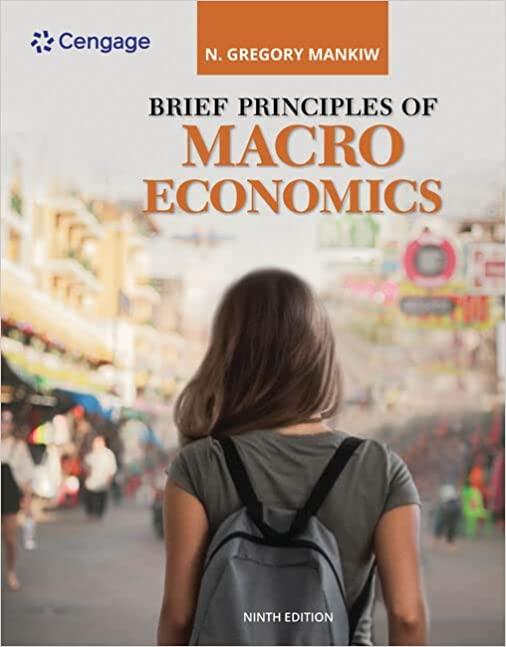I walked into the empty restaurant in Managua carrying a backpack stuffed with cash, thick stacks of
Question:
I walked into the empty restaurant in Managua carrying a backpack stuffed with cash, thick stacks of Nicaraguan córdobas bound by rubber bands. The waiter, as expected, asked me to hand over the entire stash. It may have looked like an illicit transaction. But this was Nicaragua, in 1990, at the end of its war with the American-trained contra rebels, and I was only trying to buy a meal before my money lost its value. A decade of guerrilla war and deficit spending had whipped up a maelstrom of hyperinflation and shortages. Only two items on the menu were available, and prices had doubled in a matter of weeks. With inflation surging past 13,000 percent annually, the restaurant now demanded payment upfront—to ensure that the staff had enough time to tally it. As I ate my rice and beans, two waiters at another table counted every bill. I finished before they did, even though the meal—and all those millions of córdobas—added up to less than $10.
Hyperinflation is a mercurial phenomenon, a rupture that occurs when a government persistently spends (or prints) money that it doesn’t have, and the public loses confidence in the process. The distortions that emerge—
like the backpack full of soon-to-be-worthless cash—can seem absurd, even laughable. Yet there is nothing amusing about the damage that hyperinflation can inflict on the lives of people and nations. “If you can’t trust the money the government issues, then you can’t trust anything,” says Steve Hanke, a professor of applied economics at Johns Hopkins University and a leading expert on hyperinflation (which he has defined as 50 percent monthly inflation sustained for at least 30 days). Hanke has studied the 58 cases of hyperinflation that have been recorded, from Germany’s Weimar Republic to the episode I witnessed in Nicaragua, each one an earthquake that caused people to lose faith in the very foundation—the value of money—on which their lives depended.
The newest addition to the ignominious list, and a cause for alarm in Washington, is the crisis in Venezuela. Even with the world’s most-abundant oil fields, Venezuela has mismanaged its way to economic disaster.
Hyperinflation and its common companion, chronic shortages of food and medicine, have impoverished almost all of the country’s 31 million people. Nine out of 10 Venezuelans do not earn enough money to buy sufficient food, according to a recent survey. Over all, Venezuelans have lost an average of 24 pounds each. Malaria is on the rise, as is crime. Those who can are getting out: More than 2.3 million Venezuelans have fled the country, including more than half of the nation’s doctors.
The situation is still out of control.
Venezuela’s economy shrank by 35 percent between 2013 and 2017, and economists forecast another 18 percent drop in 2018. Oil production, crippled by the lack of maintenance and investment, fell in July to its lowest point in nearly seven decades. According to Hanke, the rate of inflation over the last 12 months was 52,000 percent. The chaos poses a risk for the entire region. “Venezuela has sparked the most serious economic, humanitarian and political crisis in the Americas in decades,”
says the Brazilian economist Monica de Bolle, the director of Latin American studies at the Johns Hopkins University School for Advanced International Studies. “There has never been a crisis quite like this in the region, and we’ve had plenty.”
Nearly a century ago, Vladimir Lenin was quoted in The New York Times saying that hyperinflation was “the simplest way to exterminate the very spirit of capitalism.” If a country were flooded with high face-value notes untethered to anything of real value, he reasoned, “men will cease to covet and hoard...........
Questions to Discuss
1. The article mentions that Venezuela’s hyperinflation coincided with a shrinking economy. How does declining output contribute to hyperinflation? How does hyperinflation contribute to declining output?
2. Why do you think politicians pursue policies that lead to hyperinflation?
Step by Step Answer:






